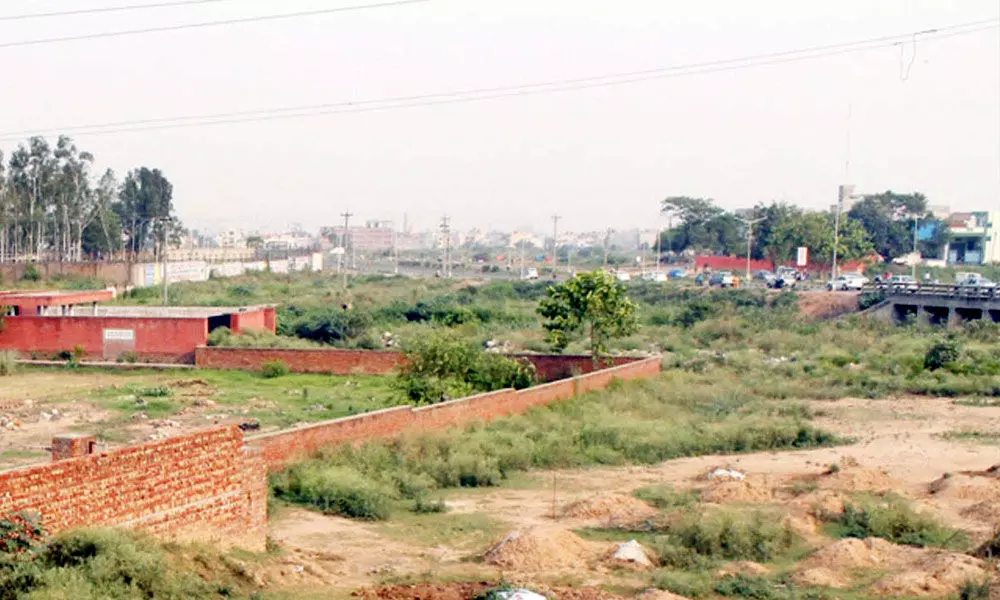IT Policy 2.0 set to boost TS realty
Plan for smart cities to fuel property demand in tier-2 & 3 cities
image for illustrative purpose

Telangana government has proposed to develop 5 lakh sq ft of plug and play space in phase-1 and 10 lakh sq ft in phase-2, particularly for the electronics sector. The government also wants to develop new ICT Hubs with plug-and-play model through PPPs to attract investments
Hyderabad: The second ICT policy 2.0 unveiled recently by Telangana government is likely to provide a great impetus to the real estate sector in the State. It aims to create over 40 smart regions in the State benchmarking with the best smart cities in the world. If these locations are developed in the next five-year period, the real estate boom will definitely be witnessed beyond Hyderabad and across the State, according to real estate sector experts.
The policy thrust areas include electric vehicle, mobile manufacturing, telecom equipment, semi-conductors and IT hardware. So, the real estate experts anticipate a huge demand for the commercial space which will in turn fuel demand for the residential real estate sector in coming years. The new Information and Communication Technology Policy for 2021-26 launched by the Telangana government, is aimed at doubling the IT exports from Telangana to Rs 3 lakh crore from Rs 1.45 lakh crore in FY21 and increasing IT jobs to 10 lakh from around six lakh now. As the second ICT policy promotes development of new parks, corridors and centres across various sectors, the demand for commercial space will grow dramatically in the entire region. Currently, Grade-A office stock is available only in Hyderabad, which is estimated to be around 70 million sq ft with a prevailing vacancy of 12-15 per cent. The commercial realty includes office space, industrial and retail.
Nearly 70 per cent of the overall office stock is concentrated in the micro market of Madhapur, Hitec city, Kondapur and Raidurg. Gachibowli, Nanakramguda, and the financial district account for nearly 25 per cent of the total stock, and the markets of Pocharam and Uppal in the eastern peripheral precincts of the city account for nearly 5 per cent.
Hyderabad's total warehousing stock, including investment and semi-investment grade buildings, stood at about 21 million sq ft as of H1 2021. An additional supply of about 5 million sq ft of warehousing stock is currently under various stages of construction and is expected to be completed over the next three years as per real estate consulting player CBRE South Asia Pvt Ltd. In H1 2021, rental values increased by about 5–14 per cent across micro-markets in the region, primarily due to increasing demand and availability of better-quality warehouses. The average deal size steadily increased over the past three years. The key contributors were retail players with an average deal size of 1.3 lakh sq ft, followed by e-commerce (92,000 sq ft) and third-party logistics (40,000 sq ft).
Under the new policy, the Telangana government has proposed to develop 5 lakh sq ft of plug and play space in phase-1 and 10 lakh sq ft in phase-2, particularly for electronics sector. The government also wants to develop new ICT Hubs with plug-and-play model through PPPs to attract investments to tier-2 and tier-3 cities in the State. With these proposals, office space will be built up soon across tier-2 and tier-3 cities of the State.
Confederation of Real Estate Developers Association of India (Credai) Telangana hails the State government's new policy.
According to Ch Ramchandra Reddy, Chairman, Credai Telangana, the development of office space in other cities brings affordability across the State and removes congestion at capital city. After one year of developing office space, gradually demand will be witnessed for residential space also.
Santhosh Kumar, Vice-Chairman of real estate consultancy Anarock Group, estimates the cost of development of 15 lakh sq ft of plug and play space at Rs 200 - 250 crore, excluding land cost. However, it will depend on the timeliness of the venture as the input costs are on the rise. Since these will be spread across geographies, the development can be accomplished in 24 to 30 months on average.
He told Bizz Buzz, "Hyderabad has continuously recorded office supply in the range of 1-4 million sq ft in the past few years. Nearly 6 million sq ft of office space is under construction and is likely to be delivered in the next few years. Work from home will create a rising demand for plug-n-play locations across the urban locations." "Investors globally are keenly observing this pattern of changing workplace practices and are exploring opportunities in the shared economy segment. As flexible workspaces gain momentum, we anticipate demand for the new-age managed offices in tier-2 and tier-3 cities to rise with many players of the sharing economy already exercising options in such markets," he further said.
The Covid-19 pandemic has altered the concept of office spaces and forced organisations and occupiers to revisit their strategies of conducting business. There is likely to be an emergence of decentralised office locations to ward off the effects of future disruptions and ensure business continuity. The new workplaces are expected to create opportunities in the non-metropolitan locations as well, industry experts say.

